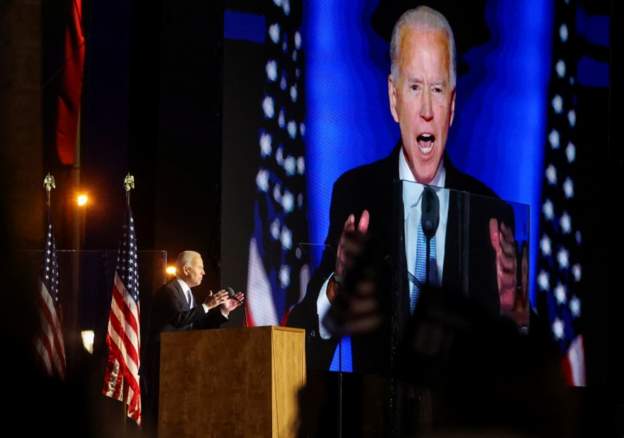WORLD NEWS
Voting rights: How the battle is unfolding across the US
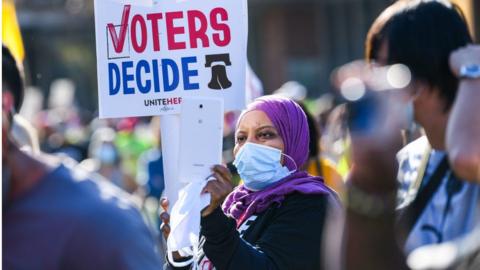
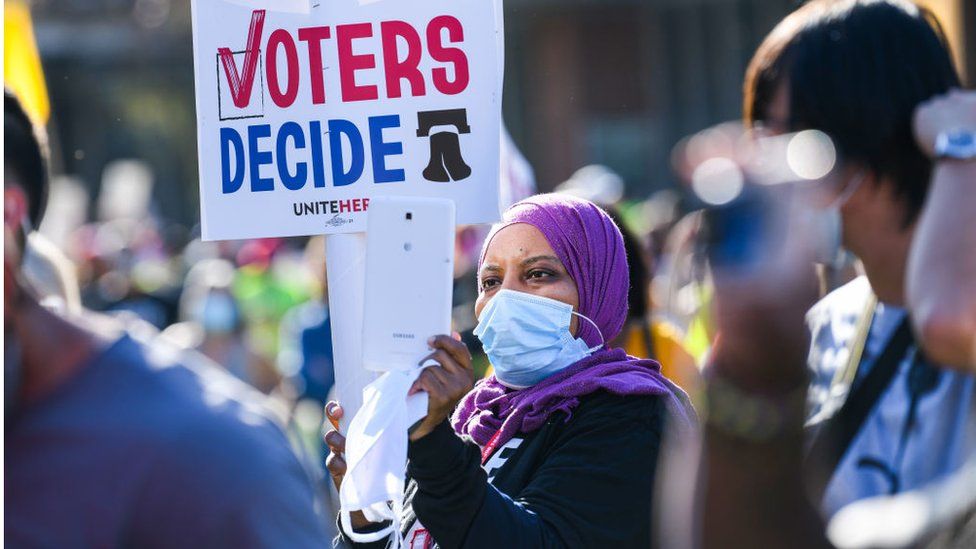 IMAGE COPYRIGHTGETTY IMAGES
IMAGE COPYRIGHTGETTY IMAGESThe battle over voting rights in the US is a drama that’s playing out in the Congress and state legislatures across the country.
In Philadelphia on Tuesday, Joe Biden gave a fiery speech, warning that American democracy is facing its greatest threat since the Civil War.
“There’s an unfolding assault taking place in America today, an attempt to suppress and subvert the right to vote and fair and free elections,” the president said.
Biden condemned recent efforts in 17 Republican-controlled states to pass laws curtailing when and where their citizens can vote – laws conservatives have framed as a response to allegations of voting fraud repeatedly made by Donald Trump in the months after his presidential defeat.
Many Republicans now believe the election was stolen from Trump – an assertion Biden called “the big lie” and one that has not been substantiated by concrete evidence.
Meanwhile, in Texas the fight over voting changes has led to drastic measures, as Democratic legislators have temporarily blocked passage of voting legislation by flying to Washington, DC. There, they are pressuring congressional Democrats to enact new federal rules for conducting elections that would supersede any state actions.
At the centre of this national debate is a question of what is the greatest threat to American democracy. Is it the security of an election process that in 2020 relied heavily on early and mail-in voting?
Or is it a system, corrupted by the influence of big donors and powerful interests, that makes voting more difficult than necessary, particularly for historically disadvantaged groups?
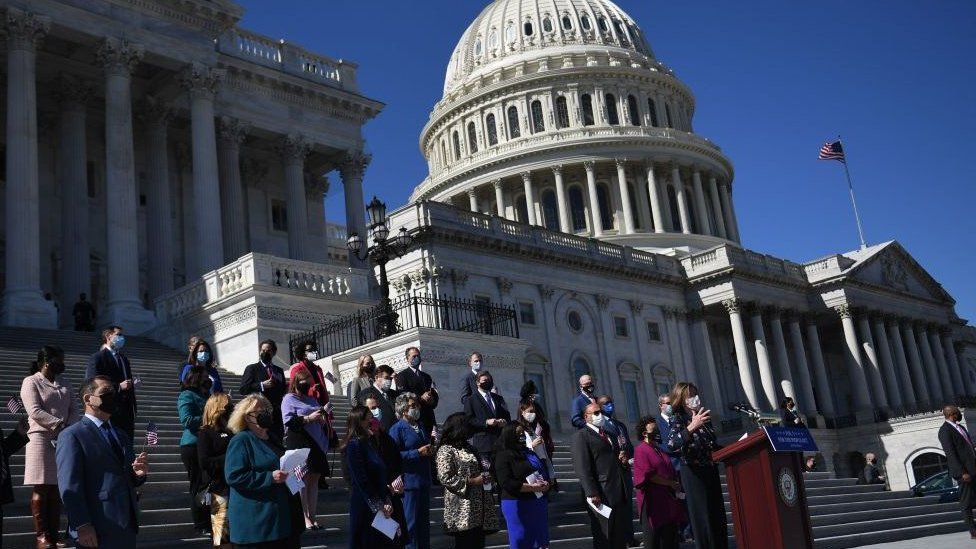 IMAGE COPYRIGHTGETTY IMAGES
IMAGE COPYRIGHTGETTY IMAGESDemocrats make their move
The Democratic effort at a national voting law centres around passage of the “For the People Act”. It represents one of the most expansive federal reforms of the US election system in a generation.
The bill would guarantee that voters can receive a mail-in ballot if requested, mandate a minimum of 15 days of early voting before every federal election, require paper ballots and set standards for voting machines.
It would prohibit states from disenfranchising felons who have completed their sentences and enact new restrictions on undisclosed so-called “dark money” political contributions.
Many new voters would be automatically registered under the legislation, which also requires technology companies to disclose information about political advertising, create new government support for small donor-funded candidates and seek to end the practice of “gerrymandering” voting maps for partisan advantage.
In March the US House of Representatives approved the bill by a nearly party line vote, with one Democrat – Bennie Thompson of Mississippi – opposing because of concerns that the redistricting provision would disadvantage black voters.
Three months later, Republicans in the US Senate blocked passage of the For the People Act by use of the filibuster, a parliamentary procedure that requires 60 votes to pass major legislation. The bill only received 50 votes – all from Democrats in the evenly divided 100-seat chamber.
Democrats have since turned their focus to updating the Voting Rights Act, a 1960s-era law that has been curtailed by the US Supreme Court over the past decade.
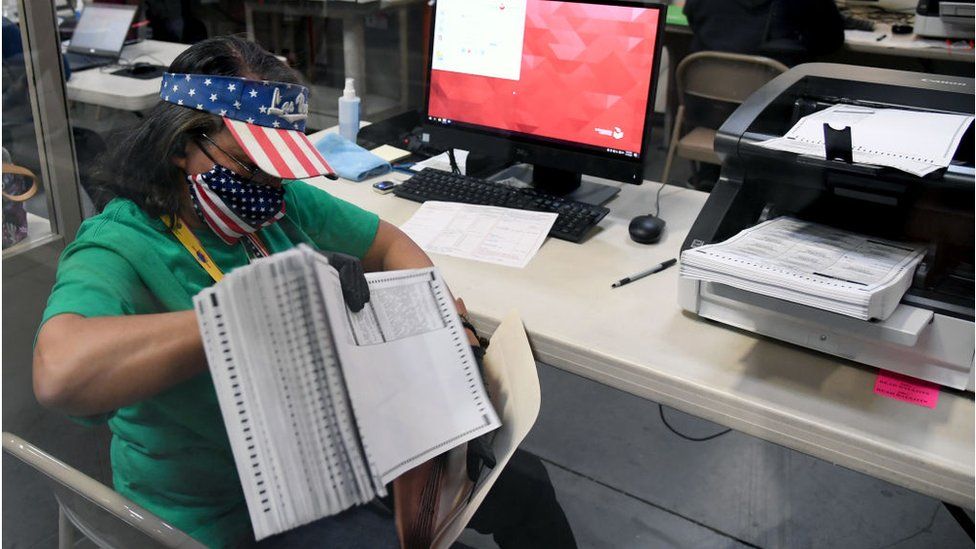 IMAGE COPYRIGHTGETTY IMAGES
IMAGE COPYRIGHTGETTY IMAGESRepublicans dig in
As evidenced by the two congressional votes, Republican opposition to the Democratic legislation has been near complete.
House Minority Leader Kevin McCarthy called the bill an “unparalleled political grab” that would consolidate Democratic power.
“What this is really about is an effort for the federal government to take over the way we conduct elections in this country,” Senate Minority Leader Mitch McConnell said shortly before his chamber blocked the bill. “It is a solution in search of a problem.”
Former Vice-President Mike Pence, in one of his first public statements since being forced to evacuate the US Capitol after it was attacked by pro-Trump rioters, wrote in an opinion column that the Democratic proposal would “increase opportunities for election fraud, trample the First Amendment, further erode confidence in our elections and forever dilute the votes of legally qualified eligible voters”.
BBC. COM
-

 Lifestyle3 weeks ago
Lifestyle3 weeks agoRoad Safety Authority narrates how buttocks causes road accident
-

 GENERAL NEWS4 weeks ago
GENERAL NEWS4 weeks agoWhy 15 police officers stormed Owusu Bempah’s church – Kumchacha narrates
-

 GENERAL NEWS3 weeks ago
GENERAL NEWS3 weeks agoWatch how Ibrahim Mahama rode Honda superbike to pay last respects to late friend
-
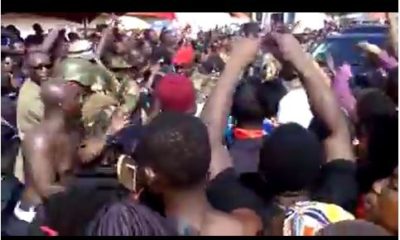
 GENERAL NEWS4 weeks ago
GENERAL NEWS4 weeks agoHow Offinso residents storm destooled queen mother’s house, demand for new chief
-

 South Africa News4 weeks ago
South Africa News4 weeks agoWoman thrown out of a speeding taxi while on her way to work
-
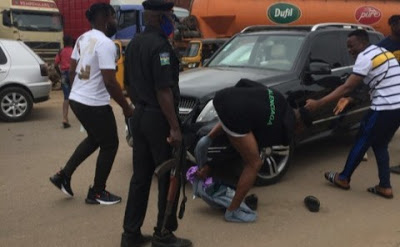
 GENERAL NEWS5 days ago
GENERAL NEWS5 days agoDeadly clash between youth and navy personnel results in two deaths at Tema Manhean
-

 SHOWBIZ KONKONSAH6 days ago
SHOWBIZ KONKONSAH6 days agoJunior Pope’s Death: Video of John Dumelo refusing to join canoe for movie shoot over safety concerns resurfaces
-
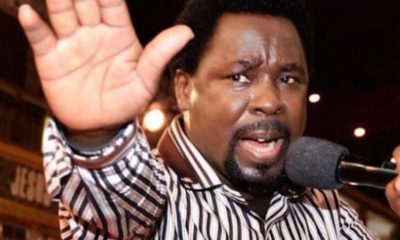
 News Africa1 month ago
News Africa1 month ago‘Satanically dubious’ – SCOAN releases statement on BBC’s report about TB Joshua, church

